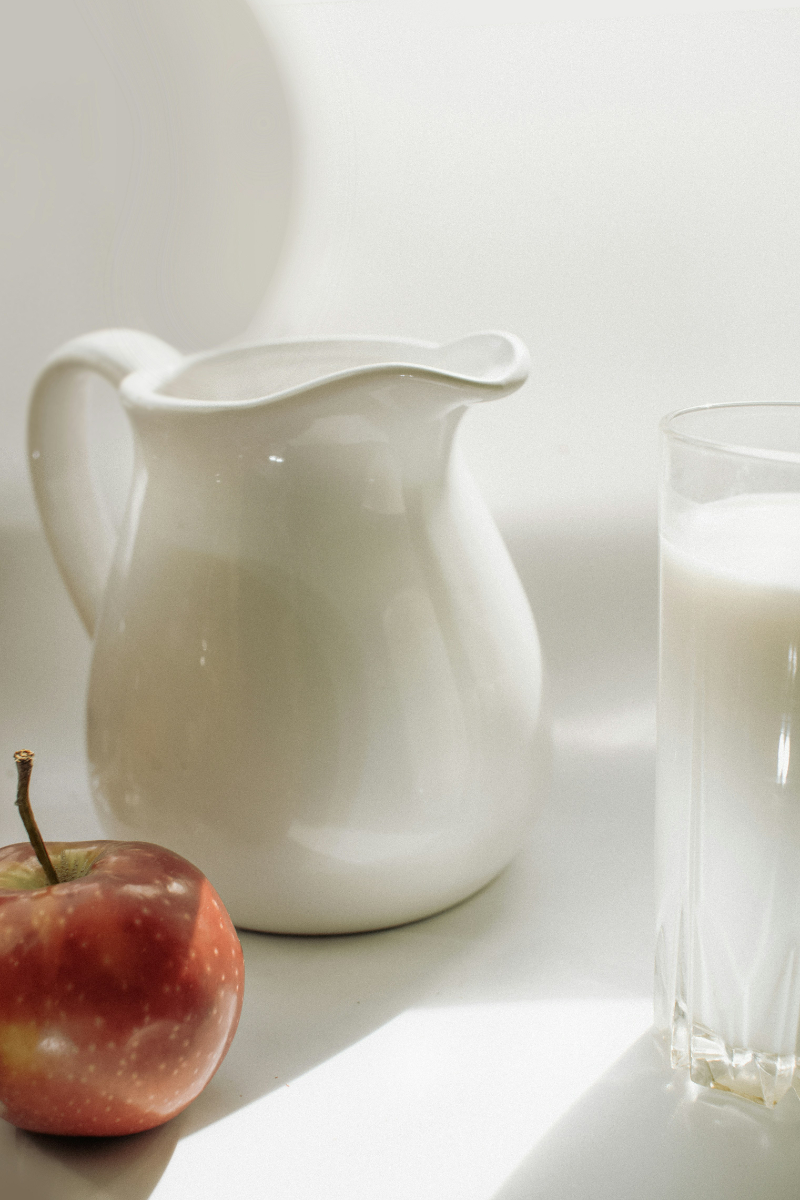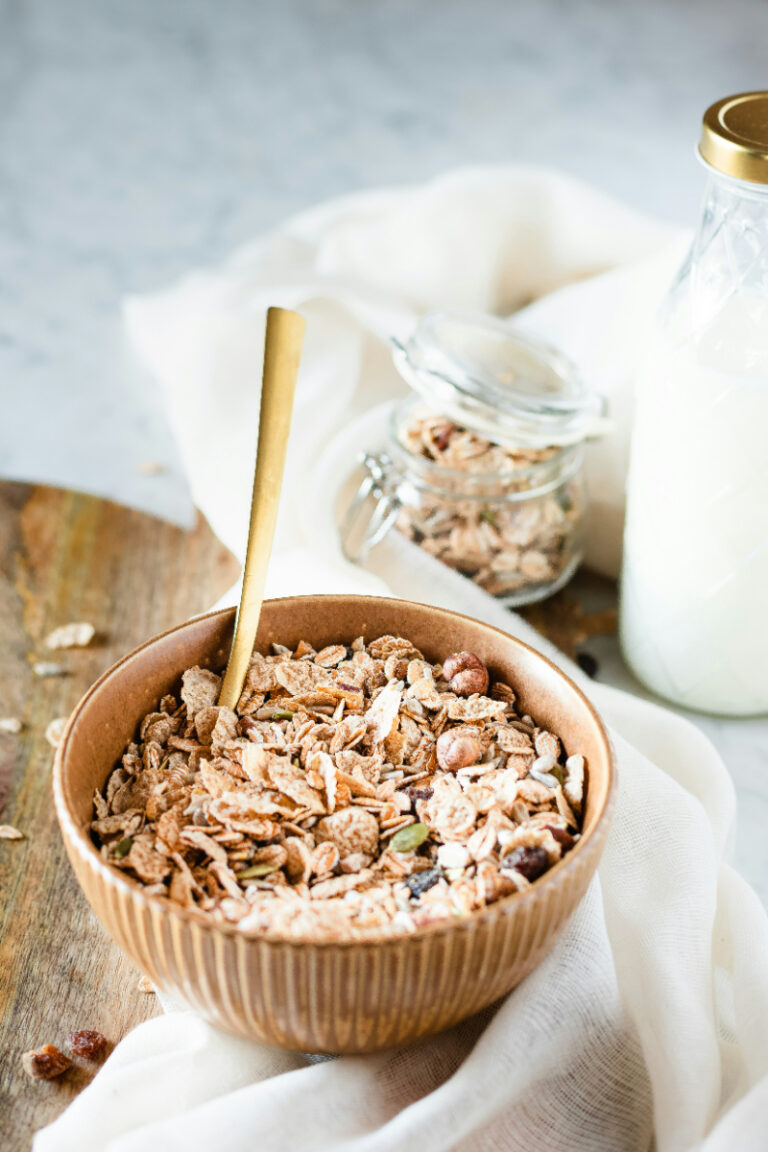How Many Carbs Are in a Cup of Skim Milk? Find Out Now!
Are you curious about the carb content in a cup of skim milk? Skim milk is a popular choice for those who want to reduce their calorie and fat intake while still enjoying the taste and nutritional benefits of milk. However, if you are watching your carb intake, it’s important to know how many carbs are in a cup of skim milk.
Skim milk is a good source of protein, calcium, and vitamin D, but it also contains carbohydrates in the form of lactose. The amount of carbs in a cup of skim milk can vary depending on the brand and type of milk, but on average, a cup of skim milk contains around 12 grams of carbohydrates. If you are following a low-carb or ketogenic diet, you may need to limit your intake of skim milk or opt for a lower-carb alternative.

Nutritional Profile of Skim Milk
Skim milk is a popular dairy product that is widely consumed by people of all ages. It has a similar nutritional profile to whole milk, but with lower fat and calorie content.
Carb Content in Skim Milk
Skim milk contains around 12 grams of carbohydrates per cup (245g) (\source). The carbohydrates in skim milk come mainly from lactose, a natural sugar found in milk.
Compared to other types of milk, skim milk has a lower carb content. For example, whole milk contains around 12 grams of carbs per cup, while 2% milk has around 12.3 grams of carbs per cup (\source).
Comparison with Other Milk Types
In addition to having a lower carb content, skim milk also has fewer calories and less fat than whole milk. For example, one cup of skim milk contains only 83 calories and 0.2 grams of fat, while one cup of whole milk contains 149 calories and 8 grams of fat (\source).
Skim milk is also a good source of protein, with one cup containing around 8.3 grams of protein (\source). Protein is essential for building and repairing tissues in the body, making skim milk a great choice for athletes and active individuals.
Overall, skim milk is a nutritious and low-carb dairy product that can be enjoyed as part of a healthy diet.
Dietary Importance of Carbs
Carbohydrates, also known as saccharides, are one of the three macronutrients that are essential for a healthy diet. They are the primary source of energy for your body, and they help your body to function properly.
Role of Carbs in Diet
Carbs are an essential part of a healthy diet. They provide energy to your body, and they are necessary for the proper functioning of your brain and nervous system. Carbs are also important for maintaining healthy digestion and preventing constipation.
When it comes to carbs, it’s important to choose the right kinds. Simple carbs, such as those found in sugar and refined grains, can cause your blood sugar to spike and then crash, leaving you feeling tired and hungry. Complex carbs, on the other hand, are digested more slowly, providing a steady source of energy throughout the day.
Lactose Intolerance and Carb Digestion
If you are lactose intolerant, you may have difficulty digesting the carbs found in milk and other dairy products. Lactose is a type of sugar found in milk, and it requires an enzyme called lactase to be properly digested.
If you don’t produce enough lactase, the lactose in milk can cause digestive problems such as bloating, gas, and diarrhea. However, many people with lactose intolerance are still able to tolerate small amounts of milk and other dairy products.
Overall, carbs are an important part of a healthy diet, and they can be found in a variety of foods, including fruits, vegetables, grains, and dairy products. By choosing the right kinds of carbs and paying attention to your body’s response to them, you can maintain a healthy and balanced diet.
Measuring and Estimating Carbohydrates
Tools for Measuring Carbs
Measuring the amount of carbohydrates in food can be done using a food scale or measuring cups. A food scale is a more accurate way to measure the weight of food, while measuring cups can be used to estimate the volume of food. Both methods can be helpful in determining the amount of carbohydrates in a food item.
Another tool that can be used to measure carbohydrates is a carbohydrate counting app. These apps allow you to enter the food you are eating and the app will calculate the amount of carbohydrates in the food. There are many different carbohydrate counting apps available, so it’s important to choose one that is easy to use and accurate.
Estimating Carbs in Dairy Products
Dairy products, such as milk, yogurt, and cheese, can be a good source of carbohydrates. However, it’s important to know how much carbohydrates are in these products in order to manage your blood sugar levels.
A cup of skim milk contains approximately 12 grams of carbohydrates. This can vary depending on the brand and type of milk, so it’s important to check the nutrition label on the milk you are consuming.
Yogurt can also be a good source of carbohydrates, but it’s important to choose a yogurt that is low in added sugars. Greek yogurt is a good option as it is high in protein and lower in carbohydrates than regular yogurt.
When it comes to cheese, most types of cheese are very low in carbohydrates. Hard cheeses, such as cheddar and parmesan, contain less than 1 gram of carbohydrates per ounce. Soft cheeses, such as brie and camembert, contain slightly more carbohydrates, but still only around 1 gram per ounce.
By using tools such as measuring cups, food scales, and carbohydrate counting apps, and by checking nutrition labels, you can effectively manage the amount of carbohydrates you consume in your diet.






